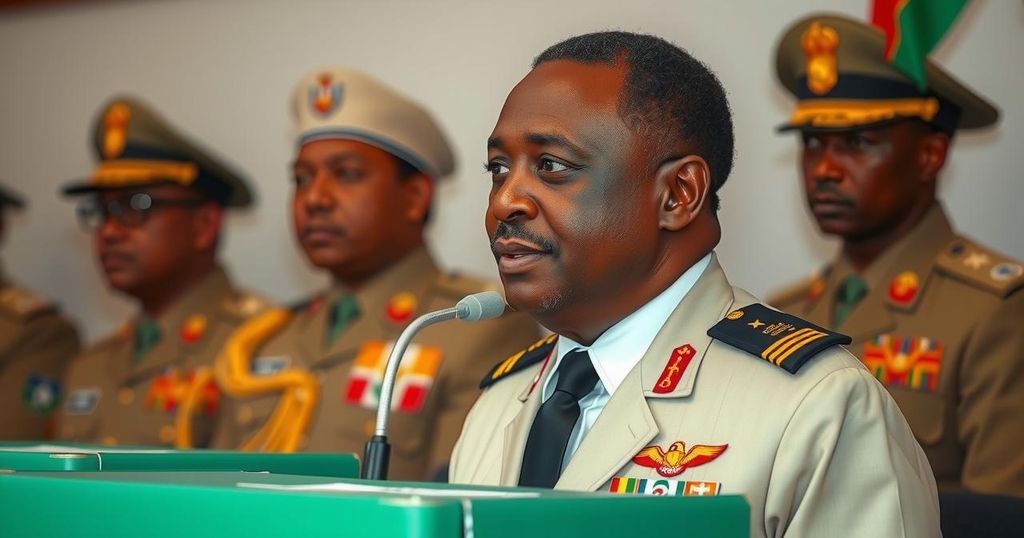Chadians are voting in a parliamentary election after a three-year military rule, with significant opposition boycott. This election is the first in over a decade and follows a disputed presidential vote by junta leader Mahamat Idriss Déby, who took power in 2021 after his father’s death.
In N’Djamena, Chad, citizens are participating in a parliamentary and regional election that signifies the conclusion of a three-year interim period characterized by military governance. This electoral event, which marks the first parliamentary election in over ten years, is occurring amidst a boycott by the primary opposition parties. The elections are a pivotal moment following months since junta leader Mahamat Idriss Déby won a contentious presidential election, which was intended to facilitate a return to democratic governance. Mahamat Déby ascended to power in 2021 following the death of his father, Idriss Déby Itno, who was a longstanding president for three decades.
Chad has been under a military transitional government since the death of long-serving President Idriss Déby Itno in 2021. The military rule, led by his son Mahamat Idriss Déby, has faced domestic and international scrutiny, particularly regarding the legitimacy of the governance and the transitioning process back to democracy. The current elections are seen as a critical step towards normalizing political life but are undermined by the opposition’s withdrawal from the electoral process, raising concerns about the electoral integrity and representativeness of the forthcoming government.
The parliamentary elections in Chad represent a significant moment in the nation’s political landscape, potentially concluding a long period of military rule. However, the boycott by major opposition parties casts doubt on the legitimacy of the election results, reinforcing concerns about the commitment to genuine democratic processes. Observers will be closely watching the outcome and its implications for Chad’s future governance and political stability.
Original Source: www.wdrb.com






